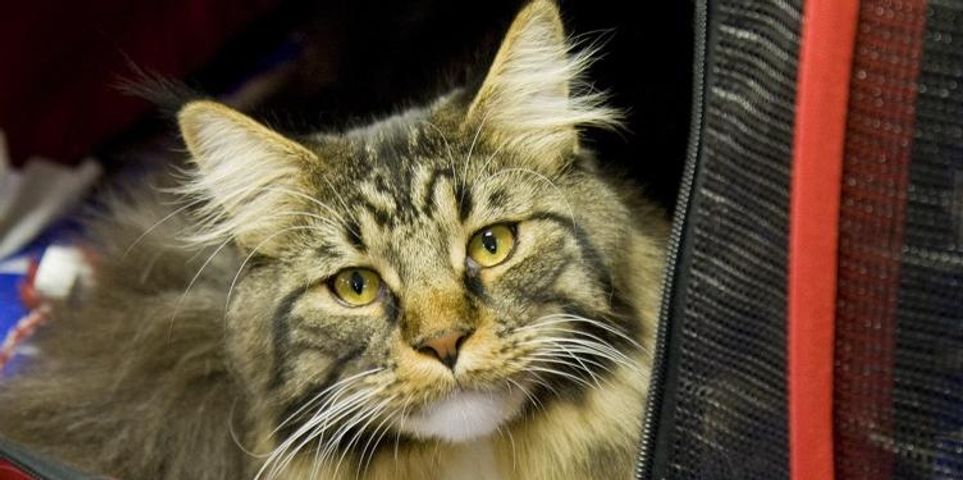
Dogs and humans aren’t the only ones who can suffer from motion sickness. Cats can also feel sick while traveling in the car. We at the Montgomery Animal Hospital want our feline friends feeling good during their travels.
Is your kitty feeling ill in the car? Look for:
- Vomiting
- Lip licking
- Drooling
- Vocalizing
- Urinating or defecating
- Subdued behavior
What causes car sickness?
Cats have a super sensitive inner ear apparatus that regulates equilibrium and balance, so they may be more prone to motion sickness. Stress and anxiety caused by leaving the familiar home environment and being contained in a travel crate may be contributing factors. For some kitties motion sickness can become a conditioned response - they learn to associate car travel with nausea.
Tips for decreasing your cat’s car sickness:
- Begin by gradually acclimating your kitty to the travel crate or carrier you intend to use when traveling. This should begin inside the home. Ideally, leave the door to the carrier open and, when your cat spends time inside, provide plenty of highly desirable treats and toys.
- Graduate to having your cat spend time in the travel carrier while in the car, without the motor running. After several days of this, turn on the engine but don’t move the car. This can be followed by short road trips. Gradually build up car travel time, ideally winding up back at home, where your kitty will be rewarded. Keeping the car cool and playing music may provide some extra benefit.
- Place something in the crate that smells like home, such as a blanket or article of clothing.
- Facing forward may help prevent car sickness. Cover the crate in a fashion that prevents your cat from looking out the sides.
- Some cats are more comfortable with their carriers placed in the footwells of the car, rather than up on the seat.
- Travel when your cat has an empty stomach (no food for 4-6 hours). This means skipping a meal or timing your travel according to your cat’s feeding schedule.
- Talk to us about Cerenia (maropitant citrate), a drug that was developed specifically for the prevention of car/motion sickness in dogs. It is also safe and effective in cats. Cerenia works best when given one to two hours prior to travel.
- Over the counter medications developed for people with motion sickness are not as effective for cats as Cerenia. Additionally, many of them can cause significant drowsiness. Do not use these products without first checking in with us.
- Pheromone products can provide a calming effect for some cats. Feliway can be sprayed into the carrier or your cat can wear an impregnated collar.
- Medications or remedies that reduce anxiety, such as Valium or rescue remedy, may provide benefit. Talk to us about this option, and be sure to give the product a test run at home before using it for a car ride.
- Aromatherapy with lavender has been shown to significantly reduce car ride-induced anxiety in dogs, according to an AVMA article. While not tested in cats, this is certainly worth a try.
Adapted from Dr. Nancy Kay's article at:
http://www.pethealthnetwork.com/cat-health/cat-dis...
Photo credit: Steve Hardy, www.flickr.com
About the Business
Have a question? Ask the experts!
Send your question

